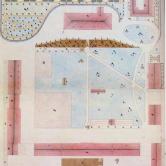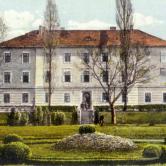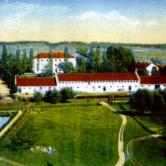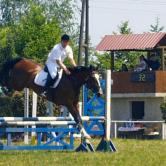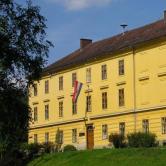Culture and tradition > College of Agriculture
The College of Agriculture in Križevci was said to be the oldest one in the Balkans. Still, the fact remains that the scientific thesis and researches undertaken by the College of Agriculture in Križevci equal those undertaken by other European colleges of agriculture. Today the original College building houses pupils and students from all over Croatia who attend the High School or College.In early 19th century agriculture remained underdeveloped, since agricultural methods were primitive and inefficient. With the development of large new estates, there was a growing demand for modern agricultural methods, and therefore for the School of Agriculture. This demand coincided with the efforts of other European countries which had already established schools of agriculture. Following their example, the town authorities made the decision to establish The College of Agriculture in Križevci, although the country was faced with political crisis and amid Bach’s absolutism.
In 1853 the Austrian Federal Ministry for Foreign officially initiates establishing the School of Agriculture in Croatia. Due to the lack of financial support, this decision was put off for a long time, until the Royal Council (government) in Zagreb agreed to provide financial support for the construction and maintainance of the College building. The Croats were thrilled that Croatia would get the College of Agriculture, since they knew that the underdeveloped villages would also benefit from it, so they were happy to help with the construction. The College started functioning only after the fall of Bach’s absolutism, on November 19, 1860.The College of Agriculture in Križevci was the only agricultural college not only in the entire South Slavonic area, but also in the entire Austro-Hungarian Monarchy. Classes were taught only in Croatian and at the opening of the College royal counselor Mojsije Baltić proudly announced that "Croatian has finally been used for academic purposes".
First European Schools of Agriculture were established in Engalnd (Oxford, 1790), Hungary (College of Agriculture, Georgikon, Keszthelj, 1797), Germany (Moglin, 1806), and France (Grignon, 1827). Croatia was lagging behind other European countries due to lack of knowledge about modern agricultural practices. However, knowledge was increasingly being applied in other fields, too. The knowledge or ideas generated lead to greater success and effectiveness, especially in the field of agriculture, and giving meaning to all human efforts has remained one of the main goals of agricultural education in Križevci.
Many professors and students have left a lasting mark on the College through the course of its existence. Each one of them left a landmark for future generations. Their efforts had a historic influence on the town.


